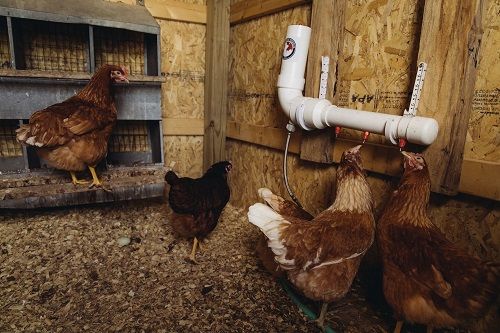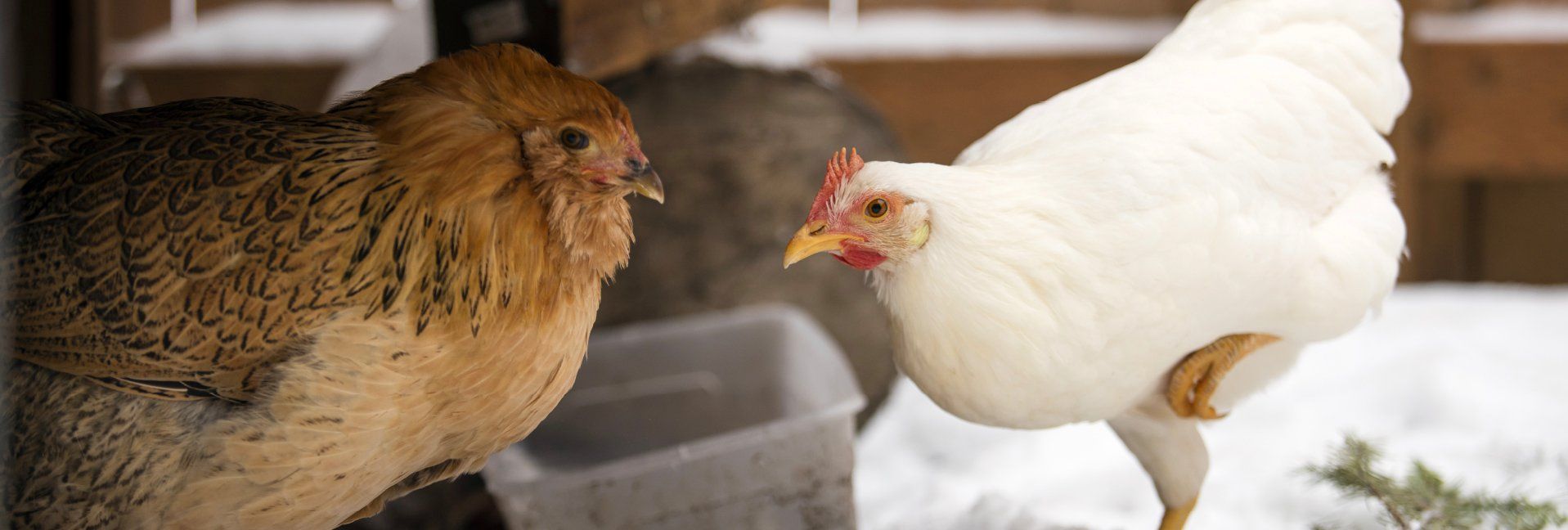Egg-Laying Layoff
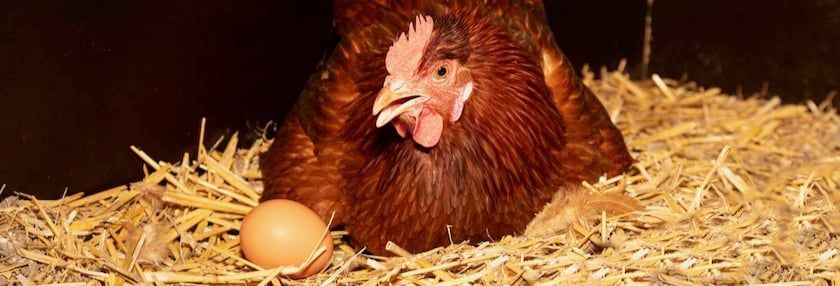

Why have my hens stopped producing?
A common concern among all poultry farmers at some point is “Why have my hens stopped laying?”
While that seems like an easy question to answer, the reality is far from it. Hens have numerous reasons why they will stop laying eggs, and these reasons are extremely varied and many cannot be easily diagnosed.
Let’s look at some of the most common causes that I have encountered and that you will most likely see in your hens.
- Age
As a hen ages, her reproductive capacity and ability to lay eggs decreases, sometimes rather quickly. So, at what age will hens stop laying? That that depends on numerous factors, including breed, health, climate, nutrition, and more.
For an average hen, the ability to lay eggs will decrease significantly at around two years of age.
Most flocks will peak egg production at a relatively young age, probably younger than you would think—in many hens, peak egg lay is within a few months or weeks of the onset of lay after puberty, and after that, peak egg production will steadily decline for the rest of their lives.
- Nutrition
Hens, like all animals, need the proper diet and nutrition to remain reproductively active. Egg laying is a high-energy-usage activity and without enough energy in the diet, hens will stop laying.
Feeding hens a good quality laying hen feed will supply all of their required nutrients and energy to maintain production.
As a hen lays eggs, her body condition will gradually decline and this happens quickly if they are not getting the required level of energy in the feed. So, while it may be tempting to feed a steady supply of scraps and treats over a complete laying hen feed, these should be fed only in supplement to a complete feed.
On the flip side of inadequate nutrition, too much energy or feed will cause excessive weight gain. The more overweight a hen is, the fewer eggs she will lay—and she may eventually stop laying completely. This is extremely common in small and backyard flocks, which are habitually overfed.
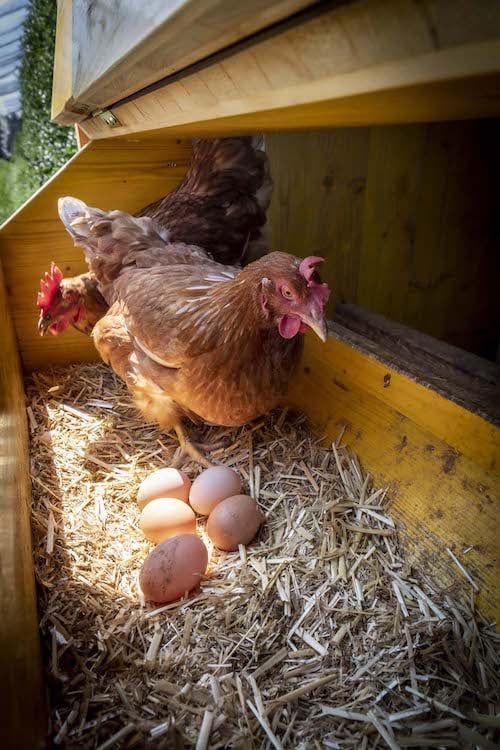
- Stress
Stress is a very broad cause for hens to stop laying eggs, including anything from cold, heat, introduction of new birds to the flock, moving, and more.
When thinking about stress and its effects on egg laying, we need to dive into physiology for just a moment. Physiologically speaking, reproduction is a "higher order” function; in other words, a lot of other conditions must be satisfied first before a hen will keep laying eggs.
Changes in temperature (either hot or cold) can cause physiological stress to the hens, and they will shift energy and body functions into survival and away from egg laying. Introducing new birds into a flock can cause enough stress that hens move into survival mode and stop laying.
The best management practice for stress is to minimize it as much as possible during laying periods.
- Molting
Each year, hens will experience a molt. During this process, they replace worn and broken feathers to prepare for winter. At the same time, they will stop laying eggs and the reproductive tract will regress and repair itself. This process can take many weeks to months to complete.
Most hens will molt in the fall as winter approaches, with fewer daylight hours being the primary trigger of molt. To prevent this, you can use lights in their coops to make their days longer during fall and winter months. This must be done before they molt because once that process begins, it can be very difficult to bring them back into production during molt.
- Disease
Many diseases will cause hens to stop laying eggs—in fact, a sudden drop in egg production is often the first indicator that a flock is ill. The best medicine for disease is always prevention. In other words, provide all vaccinations, keep new birds away from your flock, or if necessary quarantine new birds for 3 weeks.
- Cannibalism
In this instance, cannibalism refers to birds eating eggs. Usually this is caused by a nutritional deficiency, and can be remedied by feeding a proper diet.
However, the problem can be compounded by the fact that once a hen starts eating eggs this habit can be very hard or impossible to break.
To help reduce cannibalism of eggs, provide plenty of nest space for the number of hens you have, and—again—feed a complete feed that provides all of their required nutrients.
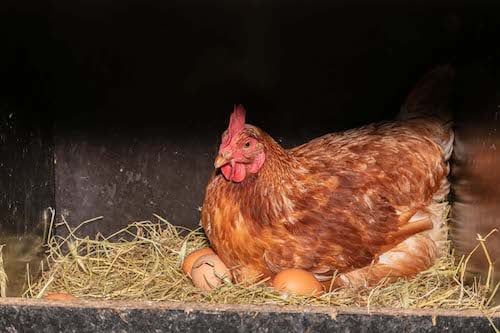
- Lack of water
Water deserves its own spotlight in this discussion. Remember that an egg is mostly water, and if hens cannot get their required amount of water each day they will stop laying. Therefore, always provide access to as much clean, cool, water as they want to consume.
Tags:Hands-on Help

Chicken Whisperer is part of the Catalyst Communications Network publication family.








